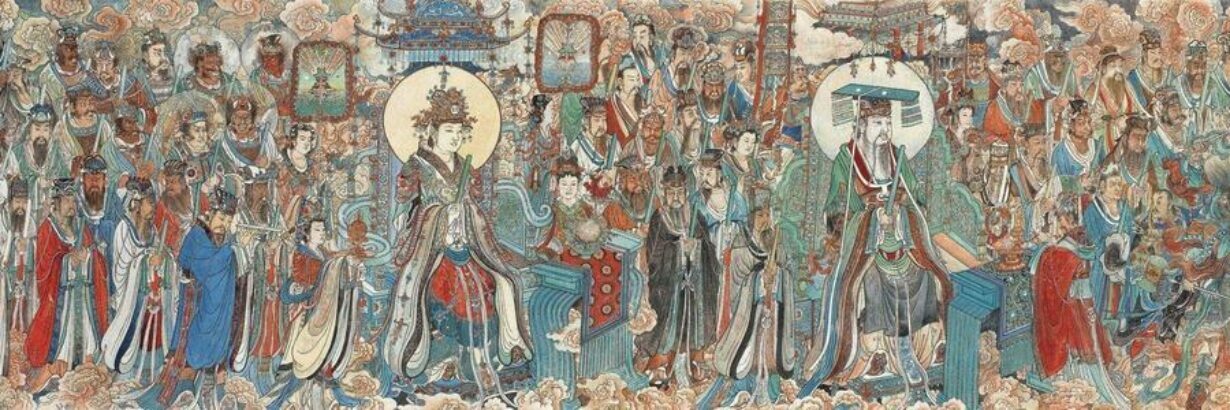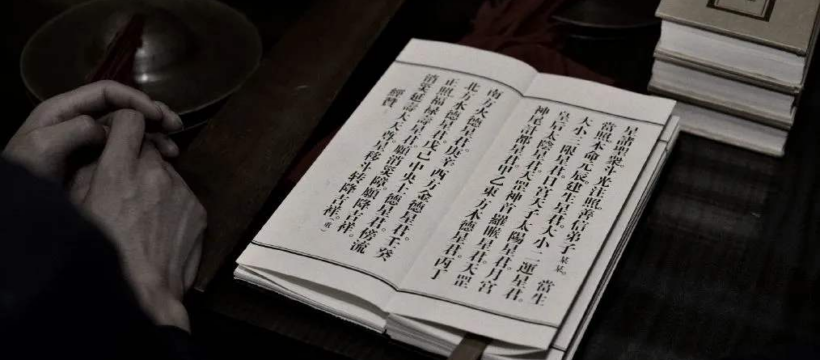Celestial Master Zhang Yu Chu discusses how Daoism practitioners should approach reading and reciting scriptures.
The second rule in the ‘Ten Rules of Daoism’ is called ‘Daoist Scriptures and Lu箓,’ which deals with the scriptures and Lu of Daoism. There are numerous Daoist scriptures, each with its own emphasis.
How should practitioners in Daoism read and recite these scriptures? First, Celestial Master Zhang Yu Chu says, ‘The various scriptures of the Three Superior Caves are proclaimed by Supreme Heavenly Sovereign of the Origin, Supreme Heavenly Sovereign of the Numinous Treasure, and Supreme Heavenly Sovereign of the Dao and Virtue. They have been passed down through the ages, elucidated and transformed by various masters.’
This passage indicates that the Three Superior Caves’ scriptures in Daoism are teachings passed down by the highest Daoist deities known as the Three Clarities. ‘Passed down through the ages’ signifies an extensive period of transmission. ‘Elucidated by various masters’ means that after receiving the teachings from the deities, they have been evolved by various Daoist masters over time.”

Continuing, Celestial Master Zhang Yu Chu elaborates on the “Daoist Scriptures and Lu” from two perspectives.
Firstly, from the viewpoint of the authors of the scriptures:
“If it is Supreme Heavenly Sovereign of the Origin who speaks, then the saving people should be considered the foremost among all scriptures; if it is Supreme Heavenly Sovereign of the Numinous Treasure who speaks, then ‘Establishing Contemplation and Inner Observation’ should be the primary focus; if it is Highest Lord Lao who teaches, then ‘Dao and Virtue in Daily Life’ should be the guiding rule.”
Here, the “saving people” refers to the Saving People Scripture度人经,’ which requires those who are cultivating the Dao to encourage goodness, assist others, observe fasting, and recite scriptures. ” Numinous Treasure speaks scriptures” refers to the scriptures spoken by Supreme Heavenly Sovereign of the Numinous Treasure. “Tai Shang teaching” refers to the scriptures spoken by Highest Lord Lao, specifically referring to the ‘Dao De Jing.’ In Daoism, the establishment of teachings is primarily based on the ‘Dao De Jing.’
Secondly, from the perspective of the contents of the scriptures:
“When cultivating oneself internally, the most essential scriptures are the ‘Forty-Nine Chapters of the Emptiness Emperor,’ various scriptures of ‘Dong Gu Da Tong Sheng Tian Qing Jing,’ which provide quick results. When benefiting the world and rescuing the spirits, the ‘Huang Di Yin Fu Jing,’ ‘Yu Shu Bei Dou Xiao Zai Jiu Ku Wu Chu Sheng Shen Jing,’ and ‘Yu Shu Chao Tian Jiu You Zhu Chan,’ all serve as the ladder to enter the Dao and the path to cultivate true virtue.”
In this context, Celestial Master Zhang Yu Chu distinguishes the contents of the scriptures for “cultivating oneself internally” and “benefiting the world and rescuing the spirits.”
Reciting scriptures and performing repentance practices serve both as a means of self-cultivation and as a way to serve society and believers, working towards the goal of benefiting the world and rescuing the spirits.

Since scriptures are teachings bestowed by divine spirits, one must have a certain attitude towards them. Celestial Master Zhang Yu Chu said, “As a Daoist practitioner, one should first show respect to the divine, burn incense, recite scriptures, and take refuge in the Great Dao.” In other words, someone who follows the Dao should begin by revering the divine, lighting incense, reciting scriptures, and seeking refuge in the Great Dao.
Celestial Master Zhang Yu Chu quoted from the scriptures: “All immortals and true individuals attain enlightenment and accomplishment of the Dao through the essential teachings.” He also cited the words of an immortal: “By collecting the mind through the scriptures, fixing the thought on the scriptures, and being able to recite them continuously day and night, one eliminates demonic hindrances and enhances one’s connection to the Dao. This is indeed the foremost expedient method.”
This indicates that scriptures are an essential path for all Daoist practitioners to attain enlightenment and accomplishment of the Dao.
Regarding how to recite scriptures, Celestial Master Zhang Yu Chu said, “Those who engage in recitation must first purify their body and mind, cleanse their thoughts, concentrate their spirits, and truly interact with the divine as if facing the Supreme God. The mind and thoughts should be undivided, the words pronounced accurately, and the tone composed and harmonious, allowing the spirit to flow freely with the breath.”
In essence, when practicing Dao and reciting scriptures, one should observe strict abstinence of body and mind, cleanse the heart of distracting thoughts, concentrate the spirit, and silently communicate with divine entities as if in communion with the gods. In doing so, the practitioner’s thoughts will be singular, and every sentence and word will be recited with sincerity and earnestness. At the same time, the recitation should be filled with a sense of “qi”. When the “qi” blends with the rhythm of nature, it brings harmony and peace to the heavens and the earth. Reciting scriptures can also edify the people, improve their moral character, gather blessings, and dispel calamities.

Regarding “箓” (Lu), Celestial Master Zhang Yu Chu said, “Among the various scriptures and Lu of the Three Superior Caves, those received by Ancestral Celestial Master are called ‘Meng Wei Du Gong’; those received by immortal Ge are called ‘Zhong Meng Si Xian’; and those received by True Lord Mao are called ‘Shang Qing Da Dong.'”
Celestial Master Zhang Yu Chu also mentioned, “There are many other talismans and Lu, all of which are meant to bring blessings to the country, prosperity to the people, protection to families, and well-being to oneself.”
In essence, the various functions of talismans and Lu aim to promote the prosperity of the country, enrich the people, bring harmony and tranquility to families, and ensure personal health and safety.
Written and Translated by Daoist Liu Cheng Yong, German Daoist Association.

